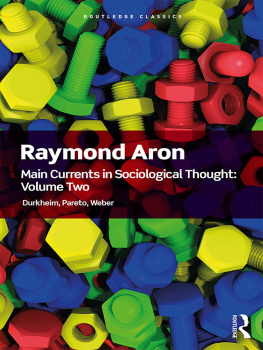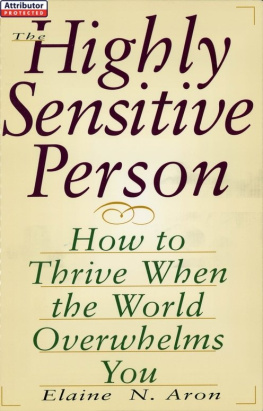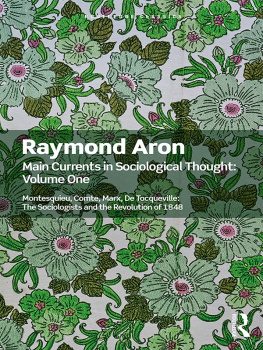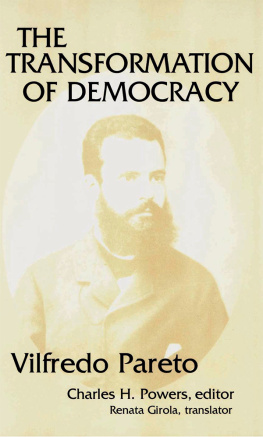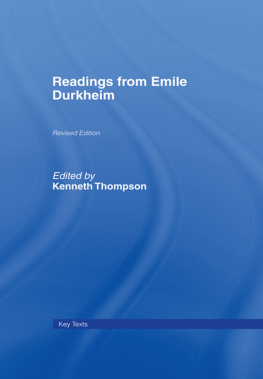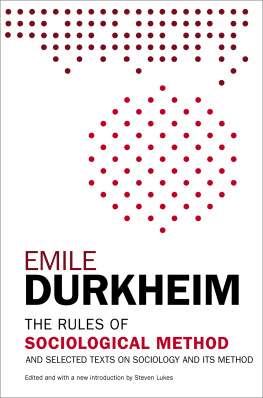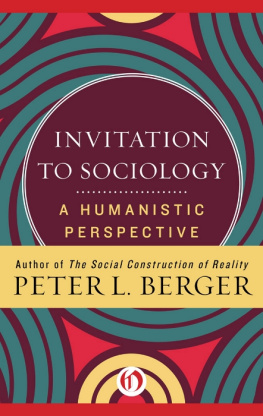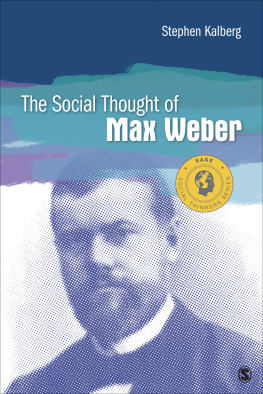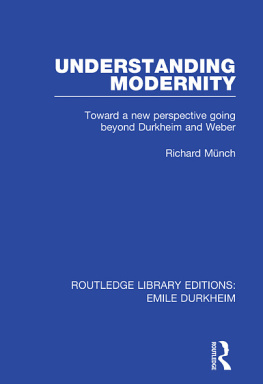Main Currents in Sociological Thought: Volume Two
The lucid elegance of his thought and style and his ability to come to grips with the essential aspects of a thinker without being distracted by irrelevant detail combine to make this a most valuable contribution.
American Sociological Review
One of his great gifts as a teacher was to provide one both with the intellectual capacities with which one could then establish ones independence, and with the arguments one needed to preserve and promote the values one shared with him.
Stanley Hoffman, New York Review of Books
This is the second of Raymond Arons classic two-volume survey of the sociological tradition - arguably the definitive work of its kind. Aron explores the work of three figures who profoundly shaped sociology as it entered the twentieth century: mile Durkheim, who continued Auguste Comtes quest for a science of society and a scientific validation of morality; Vilfredo Pareto, the Italian neo-Machiavellian who emphasized the oligarchic or elitist character of all societies; and the German sociologist Max Weber, who reflected critically on the prospects for human freedom in an age marked by bureaucratization and rationalization.
Aron presents rich portraits of these three thinkers, drawing out the enduring insights that remain in their work. At the same time he reflects critically on Durkheims project for a science of society, Paretos critique of humanitarianism, and Webers tragic pessimism. Above all the book is remarkable for demonstrating Arons lifelong indebtedness to and divergence from the thought of Max Weber, the sociologist par excellence, in Arons view.
This Routledge Classics edition includes an introduction by Daniel J. Mahoney and Brian C. Anderson.
Raymond Aron was the foremost political and social theorist of post-World War Two France. Born in Paris in 1905 he studied at the Ecole Normale Superieur, where he met Jean-Paul Sartre, later to become a life-long friend and intellectual sparring partner. After the war he taught at the Sorbonne from 1955-1968, also maintaining a long commitment to journalism, first in Le Figaro then in LExpress. He was one of a handful of scholars to have two books appear on the Times Literary Supplements 100 Most Influential Books since World War II: The Opium of the Intellectuals (1955) and Memoirs (1983).

Routledge Classics contains the very best of Routledge publishing over the past century or so, books that have, by popular consent, become established as classics in their field. Drawing on a fantastic heritage of innovative writing published by Routledge and its associated imprints, this series makes available in attractive, affordable form some of the most important works of modern times.
For a complete list of titles visit www.routledge.com/classics
First published in Routledge Classics 2019
by Routledge
2 Park Square, Milton Park, Abingdon, Oxon, OX14 4RN
and by Routledge
711 Third Avenue, New York, NY 10017
Routledge is an imprint of the Taylor & Francis Group, an informa business
Translated by Richard Howard and Helen Weaver
Translation Routledge 1970
Introduction to the Routledge Classics edition 2019 Daniel J. Mahoney and Brian C. Anderson
All rights reserved. No part of this book may be reprinted or reproduced or utilised in any form or by any electronic, mechanical, or other means, now known or hereafter invented, including photocopying and recording, or in any information storage or retrieval system, without permission in writing from the publishers.
Trademark notice: Product or corporate names may be trademarks or registered trademarks, and are used only for identification and explanation without intent to infringe.
First edition published by Basic Books 1967; Doubleday 1970; and Transaction Publishers 1999
British Library Cataloguing-in-Publication Data
A catalogue record for this book is available from the British Library
Library of Congress Cataloging-in-Publication Data
A catalog record has been requested for this book
ISBN: 978-0-8153-4819-1 (hbk)
ISBN: 978-0-8153-4820-7 (pbk)
ISBN: 978-0-429-45144-7 (ebk)
This book continues Raymond Arons presentation of the great doctrines of historical sociology. In Main Currents in Sociological Thought, volume 1, Aron examined three rival traditions of sociological reflection, those inaugurated by Marx and Comte, as well as the French school of political sociology, represented by Montesquieu and Tocqueville and of which he presents himself as a belated descendent. Like its predecessor, this volume is based on lectures originally presented at the Sorbonne in 1959. Although they have been touched up a bit and a scholarly apparatus has been added, the lectures remain remarkably faithful to Arons original presentation and hence capture his profound lucidity as a teacher. In Main Currents, volume 2, Aron turns to the three great theorists who shaped sociology as it entered the twentieth century: mile Durkheim (18581917), the distinguished French sociologist who affirmed the determinative influence of the social milieu and who exhibited a supreme confidence in the possibility of a science of society that would overcome the anomie and atomism of modern society; Vilfredo Pareto (18481923), the Italian neo-Machiavellian, who scorned liberal humanitarianism as a residue unrelated to genuine scientific or logico-experimental thought and who proclaimed that every society is built upon the ineliminable distinction between elites and masses; and Max Weber (18641920), the incomparably erudite German historian, economist, and sociologist who tried to save the possibility of science after what he, following Nietzsche, saw as the incontestable death of god, the crumbling of metaphysical supports for human hopes and aspirations. The three men left a powerful impression on both the social scientific enterprise and the common consciousness of our age.
In their distinctive ways, each provided powerful alternatives to the Marxist analysis of modern society and understanding of the sociological enterprise. Durkheim challenges the pessimistic Marxist emphasis on inexpiable class struggle; Pareto opposes its optimism regarding the ultimate resolution of the political question through egalitarian revolution; and Weber defends a place for the human element against all determinisms. As Pierre Manent observes in his Foreword to volume 1 of Main Currents, Aron was especially attracted to those figures such as Montesquieu and Weber who attempted to do justice to the claims of both science and human freedom and who understood that science should aim to enlighten but not replace prudential judgment. Aron shows in the two volumes of Main Currents that the Comtean-Durkheimean vision of an all-encompassing science of society and Marxs historicist dogmatism do not exhaust the sociological possibilities.
Arons portraits of Durkheim, Pareto, and Weber are penetrating, remarkably synoptic, and comprehensive. Each of these thinkers, Aron observes, aimed at more than methodological clarity or scientific rigor; while attempting to explore the possibilities and limits of a science of human action, each interpreted what is distinctive about modern society and attempted to articulate the features of an emerging global or universal history. In his broader reflections opening and closing the volume, Aron discretely emphasizes the sterility social science experiences when it abandons the humanizing ambition to reflect comprehensively on the larger social whole within which it operates. As a political liberal and critic of Marxist historicism, Aron does not associate the effort to move beyond partial and narrowly empirical studies with a totalizing approach to history or politics; rather he sees in it the necessary effort by social science to understand the society which is its subject matter, the world within which human and political choices are made.

